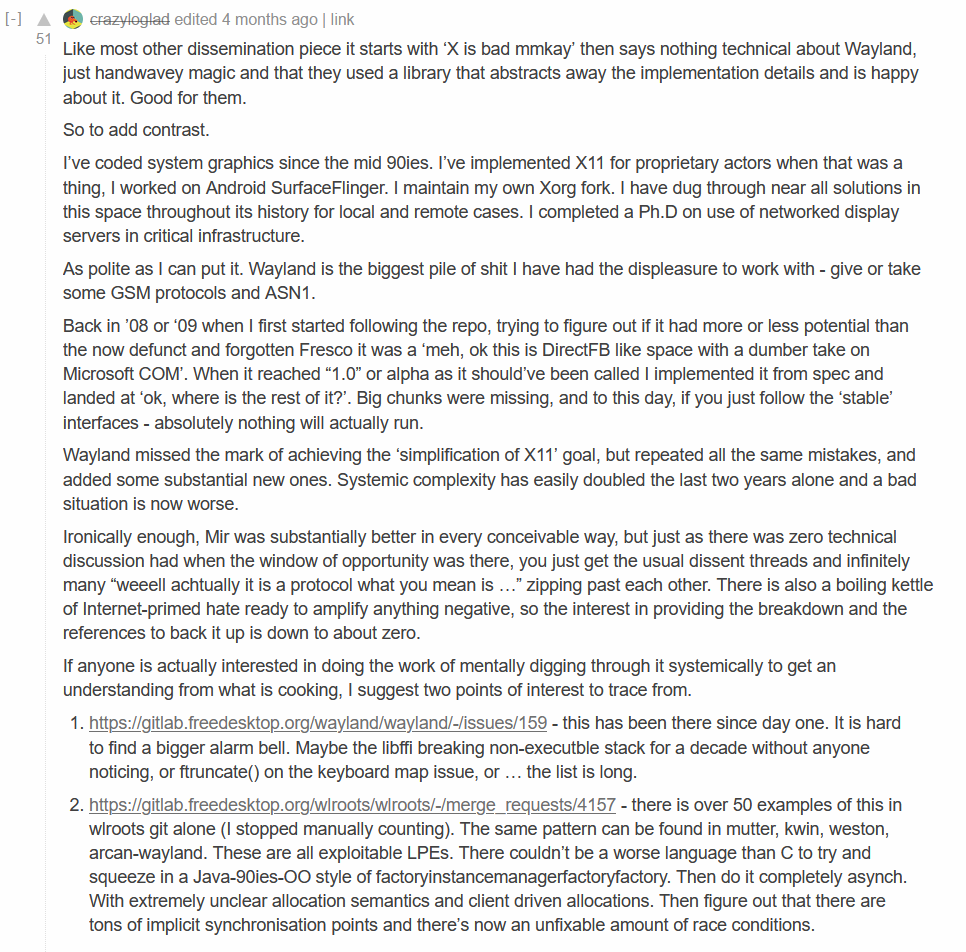this post was submitted on 02 Jan 2024
3 points (100.0% liked)
Linux
57752 readers
462 users here now
From Wikipedia, the free encyclopedia
Linux is a family of open source Unix-like operating systems based on the Linux kernel, an operating system kernel first released on September 17, 1991 by Linus Torvalds. Linux is typically packaged in a Linux distribution (or distro for short).
Distributions include the Linux kernel and supporting system software and libraries, many of which are provided by the GNU Project. Many Linux distributions use the word "Linux" in their name, but the Free Software Foundation uses the name GNU/Linux to emphasize the importance of GNU software, causing some controversy.
Rules
- Posts must be relevant to operating systems running the Linux kernel. GNU/Linux or otherwise.
- No misinformation
- No NSFW content
- No hate speech, bigotry, etc
Related Communities
Community icon by Alpár-Etele Méder, licensed under CC BY 3.0
founded 6 years ago
MODERATORS
you are viewing a single comment's thread
view the rest of the comments
view the rest of the comments

I remember having this realisation about Mir, but only after we collectively ran it off the cliff wall. The main reason everyone piled on Mir was that it was thought that Canonical would be priming Linux desktop for fragmentation with two competing standards.
But in fact, Mir was providing a solution to the fragmentation Wayland was bringing. Now we have 3, 4, 5 Mir-s, all with slight incompatibilities. Want a feature? Better hope all of them decide to implement the extension after someone proposes it. We know how well that worked in the past.
This is also ironic because the detractors of Xorg constantly talked about the issues with Xorg extensions and how many of them there were. But I never really had to look up which extensions Xorg supported, while I have had to do that with Wayland compositors.